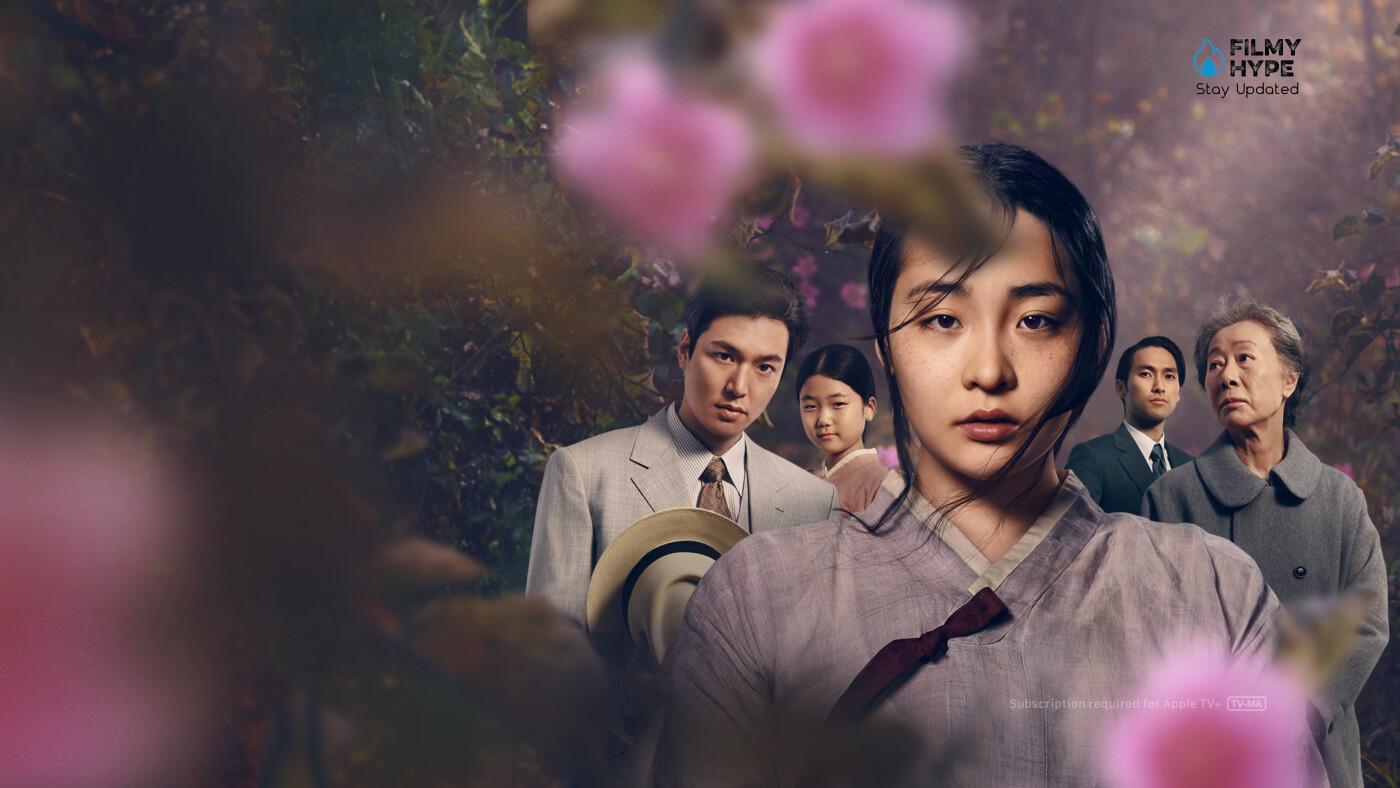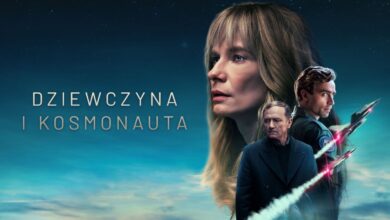Pachinko Review Episode 1-3: Apple Found a Masterpiece An Epic Story That Tells A Story That Is Still Too Little Known
Cast: Minha Kim, Lee Min-ho, Youn Yuh-jung and Jin Ha
Director: Kogonada and Justin Chon
Streaming Platform: Apple Tv+
Filmyhype.com Ratings: 4/5 (four star)
Pachinko Review Episode 1-3: Since 2020, everything has changed in the world of entertainment. Since winning the Parasite Oscars, the world has managed to go “beyond the subtitle barrier” as author Bong Joon-ho put it by squeezing one of his countless awards during that year’s award season, opening up to new stories from anywhere in the globe. The concept of the possibility of international use is transformed after the proclamation of a Korean work as Best Film according to the vote of the Academy, placing under the magnifying glass the power of stories not only in English and produced outside the large (or small) American studios. And after some time we saw Squid Game and Hellbound series that changed everything in Netflix viewership history. The viewership of Korean series is high now and all platforms including Apple Tv+ also released Dr. Brain.

Pachinko Review: The Story
Pachinko is the story of Sunja and, through her, of her family over the generations. During the series we follow her in Korea at the beginning of the twentieth century, when she was a girl and with the face of Yuh-jung Youn, we find her as a young adult played by Minha Kim and then as an elderly grandmother with the proof of the actress Yuh-jung Youn. Different temporal planes that alternate and range with fluid ease from one decade to another, to create a vibrant cross-section of a changing world, from Korea under Japanese rule to youth in the land of the Rising Sun, up to knowing and following the roots planted by his family both in Japan and in the United States, while remaining firmly anchored to the traditions of origin. A journey with a grandiose and at times epic scope but conveyed through the.
Pachinko Review and Analysis
The eight-episode adaptation of Apple TV+ premiered on March 25 first 3 episodes out and remains weekly basis. We continue Pachinko’s review by saying that the series, by generously altering the structure of the novel, has lost some of that very personal touch. Instead of telling the story in chronological order like the book does, the series bounces back and forth in time: Sunja (played at different times by Minari’s Yu-na Jeon, Minha Kim and Yuh-Jung Youn) is a young girl who before she cries in her father’s arms in one moment, and in the next, she is an old woman sitting alone, lost in her thoughts.
Rather than prioritizing Sunja’s perspective, the drama spends a lot of time following his grandson, Solomon (Jin Ha), a banker who returns to Japan from America in 1989 on business, bringing with him a more modern attitude shaped by his education in the United States which conflicts with that of Sunja. Directed by Kogonada and Justin Chon, the series is visually sumptuous and the intertwining of timelines produces some cinematic and transcendent moments: the cacophony of pachinko balls whizzing through cars in 1989 echoes the sound of rain pattering on the retirement roof in the 1910s.
A shot of Sunja’s mother carefully putting Sunja’s few possessions in a sack to take abroad as a young woman moves into a scene where old Sunja packs her suitcase to prepare for a trip. Pachinko superimposes and intersects these images, creating a tapestry of memories. Yet, however splendid and masterfully crafted the series is, that tapestry is sometimes lost through many alterations. Some of these weaken the story’s emphasis on Sunja and the subtle influences the story can have on a person’s life. The novel was extraordinarily attentive to such details, with Lee’s stoic prose illustrating the depth of worldly experiences, such as a prayer or a shared meal.
The series, however, showcases more dramatic moments at Sunja’s expense, turning the characters’ narrative arcs into intricate mysteries and following a prestige television trend of complicating timelines for suspense reasons. Sunja’s intricate relationship with Koh Hansu (Lee Min-Ho) is described as an unfortunate romance, their large age difference minimized. When her husband, Baek Isak (Steve Sang-Hyun Noh), has trouble with Japanese authorities as in the novel, the adaptation comes up with a more theatrical reason for his arrest. The older Sunja often refers to events from decades ago, as if she were creating knots that the viewer could untangle later. The intimacy on the page – Sunja’s personal conflict, the blessings and sorrows that make up a life – struggles to reach the screen, the storyline of her journey sacrificed in the service of a flashier narrative.

The series remains faithful to the book – the characters speak Korean and Japanese interchangeably, with subtitles showing how languages can even blend in the same sentence – and the conflict between the Korean and Japanese communities is depicted and discussed. But there is a but, by moving away from Sunja’s story so often, however, the drama becomes less potent about the rift between neighboring cultures, a specific conflict rarely captured in Hollywood projects and instead about the differences between American and American perspectives. Asian.
These adjustments would come more organically if Sunja’s story wasn’t told as quickly as Solomon’s. Lee meticulously follows Sunja’s progress in the book, but the series rushes through her coming of age as she brings out her nephew’s struggle to get an elderly Korean woman to sell her land to her client. As Solomon tries to make contact with the woman, he recruits Sunja to help him understand her point of view. The shifting focus transforms the story from a careful examination of a woman’s life in a particular historical context into a narrative of more contemporary cultural clashes. Like the rest of her generation, Sunja is a puzzle for Solomon to solve rather than a character with an evolution worth exploring on her own.
The result is a drama series that can feel sublime and unsatisfying at the same time. For example, the scene with Sunja and Solomon having a meal with the potential salesperson Solomon is looking for. The vendor makes Korean rice and Sunja sobs when she tastes it, overwhelmed by the memory of her mother buying a bag of white rice for her wedding when wheat was still a hard-won luxury. That memory, however, isn’t shown until the next episode and, even then, the sequence fades into a conversation about the differences between Korea and America, emphasizing the show’s main focus on cultural contrasts.
In the shots of a simple blade of grass, of a light that cuts the image, in a bowl of white rice that arouses emotion within a character, Pachinko finds her home in the serial panorama, proposing herself as one of the most complete works ever seen on the small screen, showing how its protagonists are instead wondering which is theirs.
What is the home from which they come, what happened to the one they left and how it is possible to feel protected and safe again in a place that initially seems so inhospitable, but which is also the only one capable of ensuring a more worthy tomorrow. Extrapolating the sense of attachment to one’s country and having to transplant it into a hostile environment, the Soo Hugh series reveals all of its literary soul that pours into Pachinko ‘s visual and dialogue scenes and gives them a density that is the same of which the eyes of the spectator will overflow. In a grace that drives a dense narrative, which all stems from the interactions of the characters whose cord that unites them through the decades is perceived.
Pachinko is an analysis on the use of language that sees the use of English, Japanese and Korean in the same series to confirm the importance of an imprint that wanted to be authentic as reported in the original book. The attention to the language that brings the streaming product closer to the internationality of a cinematic result like Drive My Car, also there a film about overcoming a language barrier that if in the film by Ryusuke Hamaguchi emphasized the poetry of literature and the work itself, in the Apple series focuses on the question of belonging to a place and one’s roots. An impressive work, which as you progress through the episodes will try to go beyond the screen. Which swells and overflows, rekindling feelings and memory, the same ones that release the touching spirit of the work.
Pachinko Review: The Last Words
We conclude the Pachinko review by saying that it is a well-meaning and well-made product, and many scenes have also awakened personal memories. If Pachinko returns for a second season, which I hope will, as the first has mostly omitted a significant third of the book, he would do well to be bold in telling Sunja’s story, to bring the story to light through her eyes. rather than in retrospect. As Lee’s novel postulates, however, life is a gamble; pachinko players know the game could be rigged, yet they play anyway. Season 2 is expected to take a similar risk. From its very first episodes, Pachinko turns out to be one of the most important products Apple TV has ever invested in. A story that traces real events that took place, but able to excite a lot. A product that immediately, with the use of its three languages (English, Korean and Japanese), addresses the issue of belonging and its roots. A series in which the protagonists will always look for their home and we, together with them, will try to find it.






